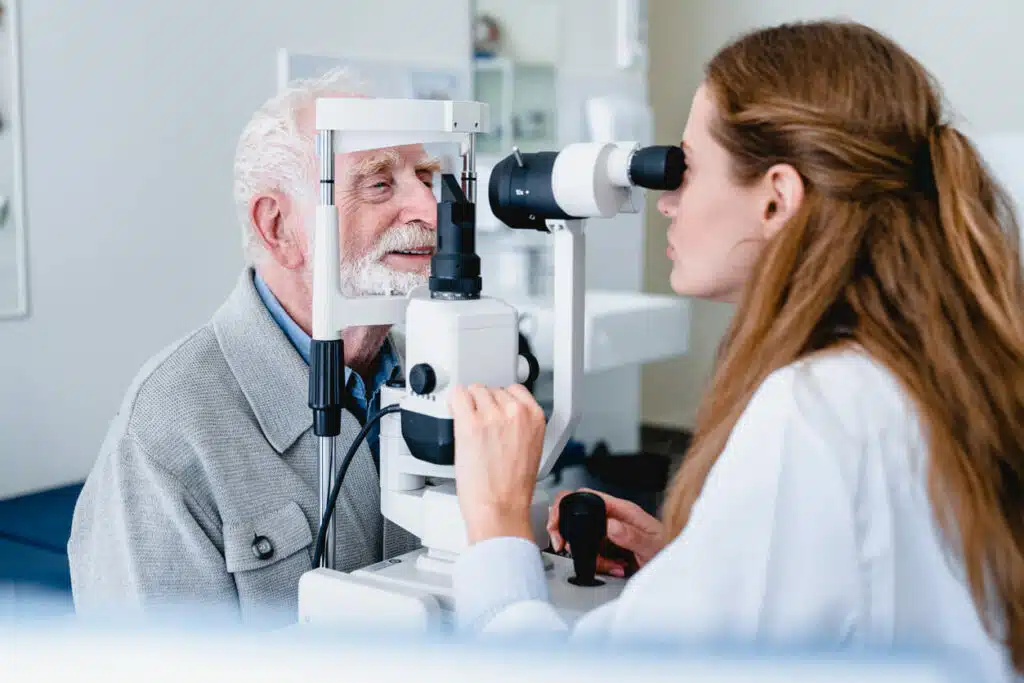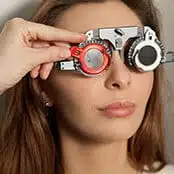
Macular degeneration is a leading cause of vision loss, particularly among senior adults and people who have diabetes. Understanding the difference between dry and wet macular degeneration, and the different wet and dry macular degeneration treatment options available, helps individuals manage their symptoms.
Also, the right care plan slows the progression of this condition. In this post, we will explore the key differences between dry and wet macular degeneration and the various treatment options.
Understanding Macular Degeneration
Macular degeneration – also called age-related macular degeneration, or AMD – affects the center of the retina. This structure is called the macula. The macula allows for sharp, detailed images of things directly in front of you.
Changes in driving, reading and the ability to recognize faces are typical symptoms. Your central vision is directly affected by AMD.
There are two primary types of macular degeneration – dry and wet.
Dry Macular Degeneration (Non-Exudative)
By far, dry macular degeneration is the most common form. Eight out of every 10 people with AMD have the dry kind.
Dry AMD develops when the macula gradually becomes thinner as part of the aging process. This thinning of the macula leads to gradual vision loss. Only one eye may be affected at first with the other eye developing symptoms over time.
Wet Macular Degeneration (Exudative)
Although far less common, this form of age-related macular degeneration is more severe than dry AMD. Wet AMD may progress rapidly to more serious vision loss.
Wet AMD occurs when abnormal blood vessels grow under the retina and leak fluids or blood. This leakage puts excess pressure on the macula and damages it.
Dry Macular Degeneration Treatment
Currently, there is no cure for dry or wet macular degeneration. However, your retina specialist can tell you about many effective strategies to manage the condition and slow it down. Here are some of the strategies which could help preserve your vision.
Diet and Exercise
Make sure you add leafy green vegetables, fresh fruits, nuts and fish to your diet every day. Nuts and fish contain omega-3 fatty acids which benefit eye health.
Also, exercise as much as possible. Physical activity controls your weight and helps prevent problems such as hypertension and diabetes. Both of these chronic health conditions contribute to vision problems, such as macular degeneration and retinopathy.
Supplements
Your eye doctor can recommend supplements to support your eye health. Those which contain Vitamins C and E, lutein, zinc, copper and zeaxanthin are most helpful in preventing and slowing macular degeneration.
Routine Eye Examinations
Be sure to get eye examinations on a regular basis. This way, your doctor can detect changes in your eye health and vision early when treatments can be most effective.
Wet Macular Degeneration Treatment
Wet macular degeneration requires more aggressive treatment to prevent severe vision loss. The primary goal is to stop or slow the growth of abnormal blood vessels and manage harmful fluid leakage. Here are some treatment options which help our wet AMD patients.
Anti-VEGF Injections
Vascular endothelial growth factor (VEGF) inhibitors, such as ranibizumab (Lucentis), aflibercept (Eylea), and bevacizumab (Avastin), are injected directly into the eye. These drugs block the protein responsible for the growth of abnormal blood vessels.
The injections reduce leakage and slow vision loss. Typically, patients receive injections on a regular basis to maintain as much of their vision as possible
Photodynamic Therapy (PDT)
This involves injecting a light-sensitive drug into the bloodstream. The drug is then activated by a laser to target and destroy abnormal blood vessels. PDT is less commonly used today due to advancements in anti-VEGF therapy. However, it remains a good option for certain cases.
Laser Photocoagulation
This technique focuses laser light on the macula to seal and destroy leaking blood vessels. It is not used as much these days because of the potential risk of damage to surrounding healthy tissue.
Surgery
In some cases, the eye doctor may perform a vitrectomy to remove blood and scar tissue from the eye. Providers reserve this procedure for more severe cases of AMD which do not respond well to other treatments.
Macular Degeneration Treatment Near You in Washington, MO
We want our patients to understand the differences between dry and wet macular degeneration and their respective treatments. With this knowledge and our expertise, we can manage symptoms of both kinds of AMD for better vision and eye health.
If you are experiencing symptoms of macular degeneration or have been diagnosed with this condition, consult one of our eye care professionals. We will determine the most appropriate treatment plan. At Advanced Sight center, our macula specialist is Dr. Anthony De Beus.
For more information, schedule an appointment at Advanced Sight Center today. Call us at (636) 239-1650 or request your visit by completing our simple online form.
Your vision is our priority. We look forward to hearing from you!



